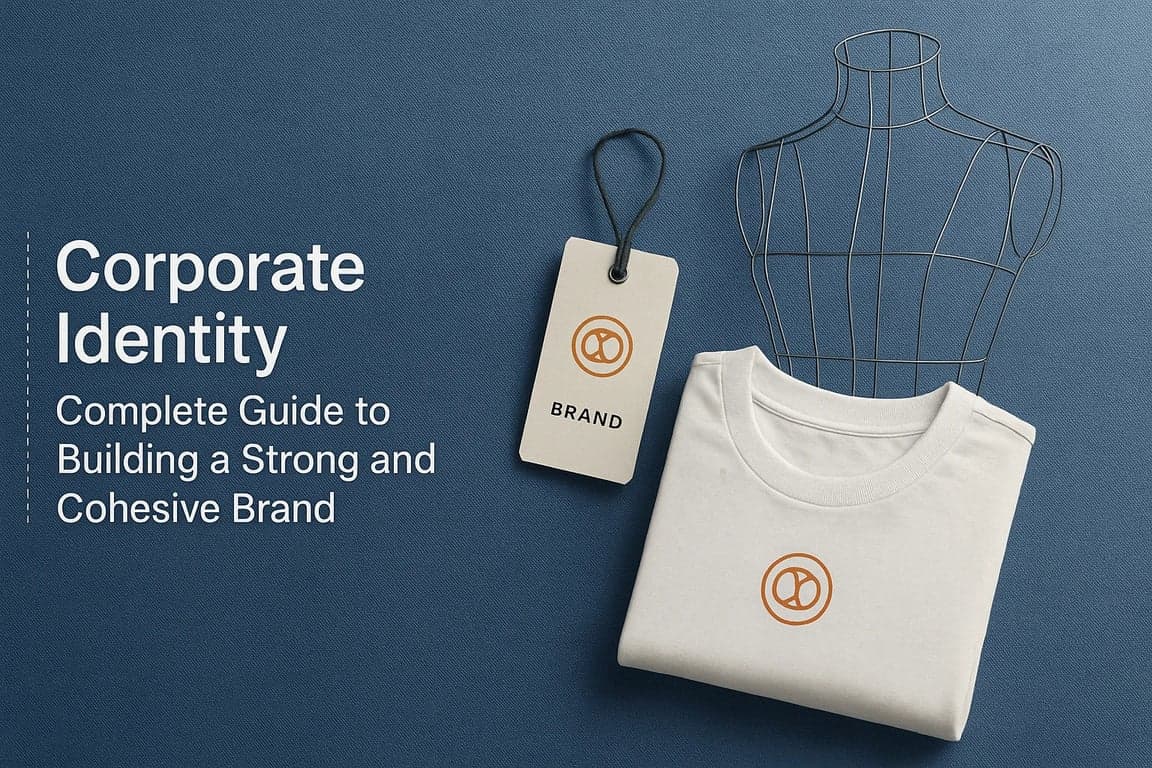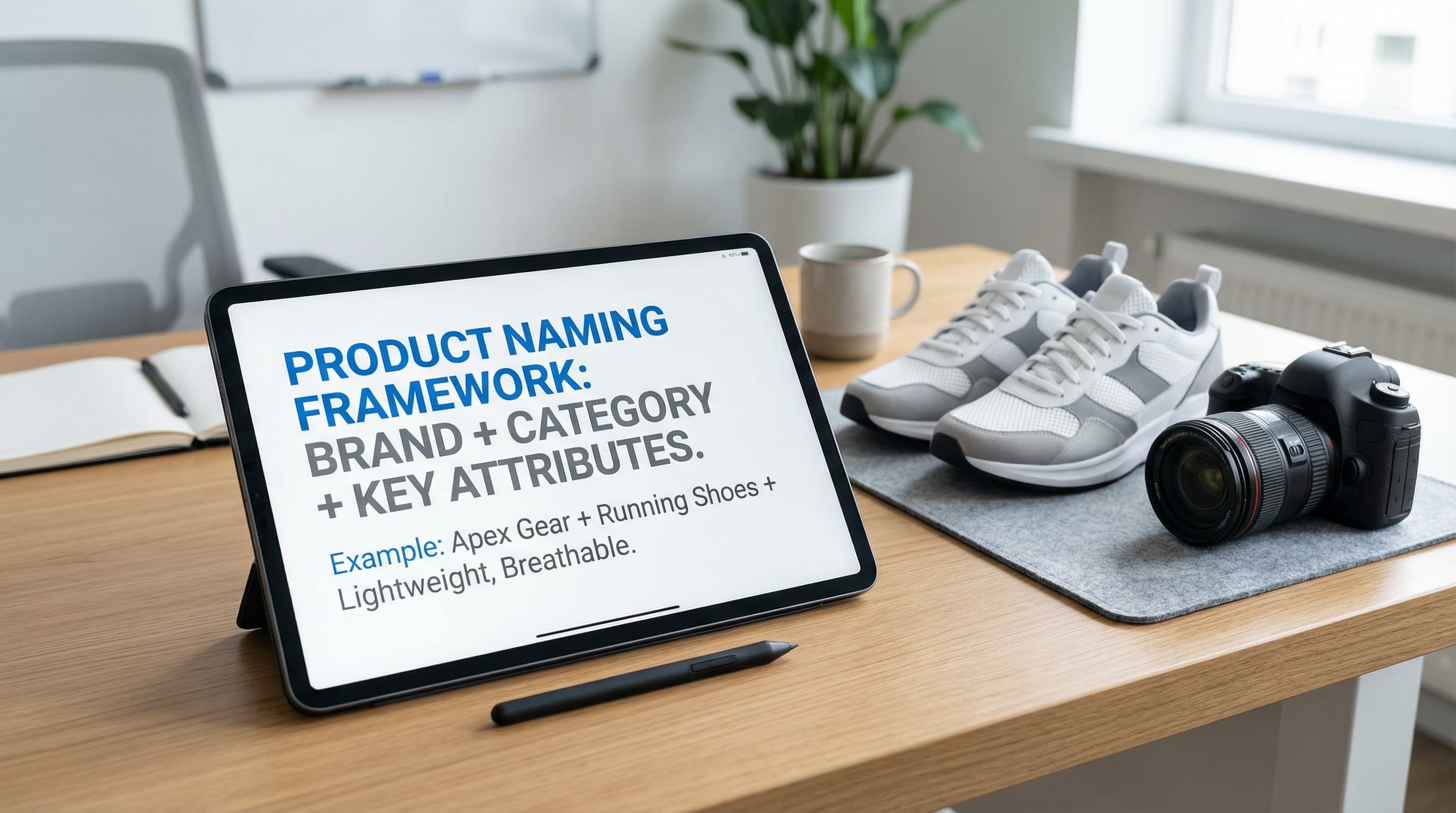💡 Key concept: Corporate identity is not just what you project externally, but also how your company perceives itself internally. A solid and coherent identity generates trust, credibility, and brand loyalty.
Corporate Identity: Complete Guide to Building a Strong and Cohesive Brand | ButterflAI
Discover how to create a solid and coherent corporate identity. Complete guide with key elements, best practices, and real examples to build a successful brand.

A solid corporate identity is the foundation of a successful brand
What is Corporate Identity?
Corporate identity is the set of visual and conceptual elements that define a company's personality, values, and objectives, determining how it presents itself to the public and how it differentiates from competitors. It's much more than a logo or corporate colors: it's the essence that connects the company with customers, employees, and investors through every touchpoint.
A well-defined corporate identity acts as a magnet that attracts the right target audience, facilitates brand recognition, and creates a memorable experience in every interaction. Companies like Apple, Nike, or Coca-Cola have demonstrated that a consistent and powerful corporate identity can generate brand value exceeding billions of dollars.
The 4 Key Elements of Corporate Identity
An effective corporate identity is built on four fundamental pillars that must work in a coordinated and consistent manner:
🎨 1. Visual Identity (Visual)
Logo: The main symbol representing your company. It should be memorable, versatile, and reflect brand personality. Typography: Official fonts that convey the company's character. Color palette: Primary and secondary colors that evoke specific emotions. Graphic elements: Patterns, iconography, and visual style that complement the identity.
💬 2. Verbal Identity (Verbal)
Tone of voice: The personality your company transmits when communicating (professional, friendly, innovative). Language: Vocabulary and communicative style specific to your sector. Key messages: Fundamental concepts you want to convey about your company. Storytelling: The narrative that emotionally connects with your audience.
🏢 3. Corporate Culture (Cultural)
Core values: Principles that guide all business decisions. Mission: The central purpose and reason for the company's existence. Vision: Long-term aspiration of where the company wants to be. Behavioral norms: Unwritten rules that define how employees act.
🤝 4. Customer Experience (Experience)
Touchpoints: All contact points between customer and company (web, social media, customer service). Customer journey: Complete experience from discovery to purchase and follow-up. Post-sale service: Support and ongoing relationship with the customer. Consistency: Coherence in experience across all channels.
Importance of Corporate Identity: 5 Key Benefits
A solid corporate identity is not a luxury, it's a strategic necessity that directly impacts business success. The benefits go beyond aesthetics:
1. Competitive Differentiation
In saturated markets, corporate identity is your most powerful competitive advantage. It allows your company to stand out from competitors and be easily recognized by unique characteristics that only you possess.
Tip:
- Develop a unique value proposition that differentiates you
- Create distinctive and memorable visual elements
- Define an authentic and recognizable tone of voice
- Establish a unique customer experience in your sector
2. Consistency Across All Channels
Consistency generates trust and professionalism. When all touchpoints transmit the same message and values, customers perceive a solid and reliable company.
Tip:
- Maintain the same visual identity across web, social media, and printed materials
- Use the same tone of voice in all communications
- Apply corporate values in every interaction
- Train the team to coherently represent the brand
3. Emotional Connection with Audience
People don't buy products, they buy emotions and experiences. A well-defined corporate identity establishes an emotional connection that transcends price and generates genuine loyalty.
Tip:
- Define your brand personality as if it were a person
- Create stories that resonate with your audience's values
- Use colors and elements that evoke desired emotions
- Develop communication that speaks your ideal customer's language
4. Credibility and Trust
A professional and coherent corporate identity transmits seriousness and reliability. Customers prefer to do business with companies that project stability and professionalism.
Tip:
- Invest in professional design that reflects quality
- Maintain visual coherence in all materials
- Communicate clearly and transparently
- Always fulfill promises made through your identity
5. Long-term Brand Value
A solid corporate identity is an investment that appreciates over time. It contributes to building a strong and valuable brand that can become your most important asset.
Tip:
- Think of identity as an investment, not an expense
- Maintain consistency to build brand recognition
- Evolve the identity gradually, without abrupt changes
- Measure the impact of identity on brand value
How to Create a Corporate Identity Step by Step
Creating an effective corporate identity requires a structured process that combines strategic analysis, creativity, and planning. Here's the proven methodology:
Phase 1: Analysis and Strategy (Weeks 1-2)
Define the fundamentals: Before creating visual elements, you must be clear about strategic aspects that will guide all design and communication decisions.
Tip:
- Perform a SWOT analysis (Strengths, Weaknesses, Opportunities, Threats)
- Define corporate mission, vision, and values
- Identify your target audience in detail
- Analyze competition and find differentiation opportunities
- Establish brand personality attributes
Phase 2: Visual Identity Development (Weeks 3-6)
Create visual elements: With strategy defined, develop graphic elements that will visually represent your company.
Tip:
- Design a memorable and versatile logo
- Select a color palette based on color psychology
- Choose typography that reflects brand personality
- Create complementary graphic elements (patterns, icons)
- Develop applications in different formats and sizes
Phase 3: Verbal Identity and Communication (Weeks 4-5)
Develop brand voice: Define how your company will communicate and what messages it will transmit in each interaction.
Tip:
- Establish specific tone of voice for your brand
- Create key messages for different audiences
- Develop storytelling coherent with your identity
- Define vocabulary and communicative style
- Create communication templates for different channels
Phase 4: Corporate Identity Manual (Weeks 6-7)
Document everything: Create a comprehensive manual that allows anyone to correctly apply your corporate identity.
Tip:
- Include technical specifications for all elements
- Define correct and incorrect uses of each element
- Create application examples in different media
- Specify color codes, typography, and measurements
- Include templates for documents and communications
Phase 5: Implementation and Launch (Weeks 8-12)
Execute the plan: Implement the new identity across all touchpoints in a coordinated and consistent manner.
Tip:
- Update all existing materials gradually
- Train the team in correct identity application
- Launch new identity with a communication strategy
- Monitor implementation and adjust as needed
- Collect feedback and make continuous improvements
Examples of Successful Corporate Identity
Analyzing success cases helps us understand how effective corporate identity works in practice. These examples demonstrate different approaches and results:
🍎 Apple: Simplicity and Innovation (Technology)
Visual elements: Minimalist logo, neutral colors, clean typography. Message: "Think Different" - Accessible innovation. Experience: Intuitive products, unique store design, personalized service. Result: World's most valuable brand, extreme customer loyalty.
👟 Nike: Inspiration and Achievement (Sports)
Visual elements: Iconic swoosh, bold typography, energetic colors. Message: "Just Do It" - Personal achievement. Experience: High-performance products, inspirational marketing, sports community. Result: Athletic footwear leadership, deep emotional connection.
🥤 Coca-Cola: Happiness and Tradition (Beverages)
Visual elements: Classic script logo, characteristic red, vintage typography. Message: "Open Happiness" - Shared happy moments. Experience: Consistent taste, emotional marketing, global presence. Result: World's most recognized brand, timeless emotional value.
🏠 Airbnb: Belonging and Experience (Tourism)
Visual elements: "Bélo" logo (belong), warm colors, authentic photography. Message: "Belong Anywhere" - Home anywhere. Experience: Intuitive platform, local hosts, unique experiences. Result: Tourism industry transformation, trust in collaborative economy.
Common Mistakes in Corporate Identity
Avoiding these frequent errors can save you time, money, and image problems. Learn from the most common mistakes:
❌ Following trends without considering brand essence
- Problem:
- Solution: Prioritize coherence with your brand essence over passing trends. Trends change, your identity should be timeless.
❌ Inconsistency across different channels
- Problem:
- Solution: Create a detailed identity manual and ensure all teams follow it rigorously.
❌ Not clearly defining corporate values
- Problem:
- Solution: Dedicate time to defining authentic and specific values that guide all brand decisions.
❌ Ignoring target audience
- Problem:
- Solution: Research your audience deeply and create an identity that resonates with their values and aspirations.
❌ Constantly changing visual identity
- Problem:
- Solution: Maintain...
Latest posts

Shopify SEO Collections: The Playbook for Optimizing Categories
Master your Shopify category SEO with a content strategy, technical architecture, and smart scaling.
Jan 17, 2026

Alt Text in Shopify: Image SEO and Accessibility at Scale
Operational playbook to optimize alt text for thousands of products: SEO, web accessibility, and automation at scale.
Jan 10, 2026

How to Optimize Product Titles for SEO (Without Losing Coherence)
Master your product naming with a scalable framework that improves CTR, avoids duplicates, and ranks in Google Shopping.
Jan 8, 2026